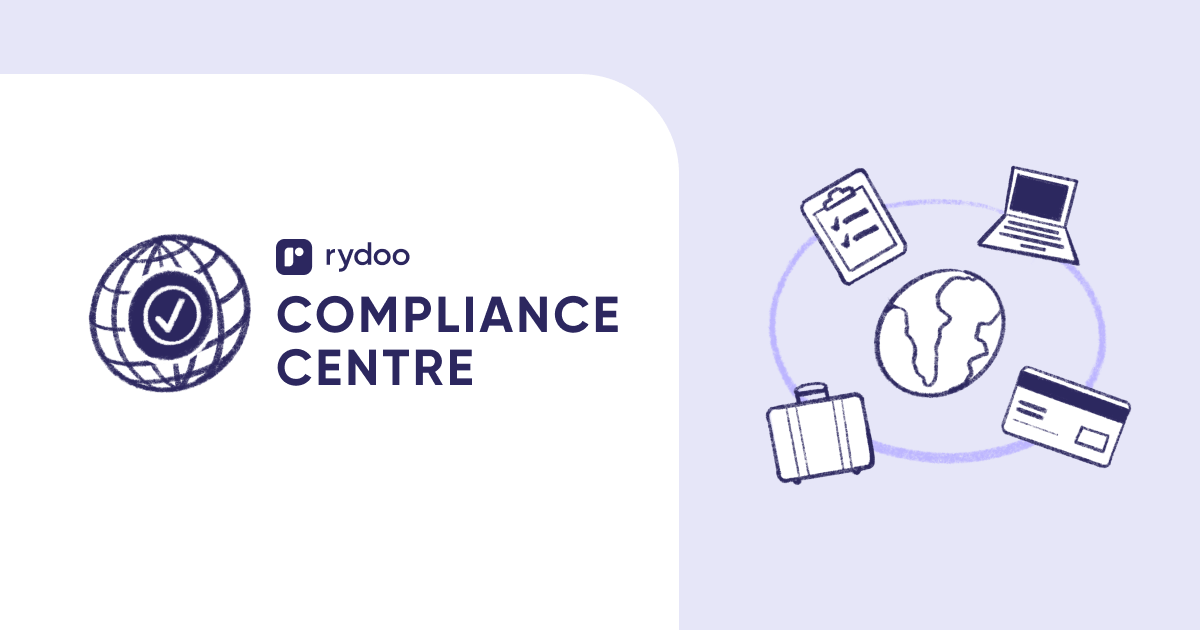Those who often travel for work in the UK know how daunting it can be to deal with the multiplicity of laws and regulations around Per Diem, reimbursements, scale rate payments and round sum allowances in the United Kingdom. It can be easier to get lost in them than in tube lines.
Per Diem rates refer to daily allowance employees can get to cover their expenses whilst on a work-related trip. These rates can be set by the organisation for which the employee works, but most governments set a maximum limit that can be paid to an employee, and the UK is no exception. And it might sound pretty easy and straightforward, but the truth is these rates and the legislation associated with it can be a bit more complex than you might expect.
If you’re planning to travel or sending one of your employees on a business trip outside of the UK and want to stay compliant with all rules and regulations, this article will help you navigate this often complex sea of information.
Per Diem in the UK 101
Let’s start with the basics. Aside from being a Latin word, Per Diem does not refer to trips to Rome, even though that’s where the expression originated. It was in the ancient city, during the principality of emperor Neva (96-98 CE), that a series of welfare programmes was instituted, and one of them paid special attention to orphans.
At the time, children would receive up to 2.5 assēs (the currency at the time) per diem (per day), so they could feed themselves. Today, the expression has taken a whole different meaning, referring to a fixed rate that is paid by a corporation as a means to compensate employees for their business expenses when travelling. In the UK, they’re called Scale Rate Payments by HMRC (His Majesty Revenue and Customs), the British taxing authority.

Scale Rate Payments in the UK
Typically, Per Diem or scale rate payments are used to pay or reimburse employees for their travel, accommodation and meal expenses whilst on a business trip outside their jurisdiction. The way these rates are attributed can vary from company to company, and whilst in one organisation, scale rate payments may be paid to cover just meals and accommodation, in another, they may be disbursed to cover travel and all associated expenses.
Per Diem or scale rate payments have benefits for both employers and employees, such as allowing employees to understand how much they’ll be compensated for their work-related trips and companies to predict and control their travel-related costs, making it easier to stay under budget. However, it is still important to note that, to budget for scale rate payments, it will still be necessary to estimate how many employees will be travelling for how many days.
But once those parameters have been understood, computing a cost follows simple arithmetic. In addition, scale rate payments reduce paperwork, since they obviate the need for a traveller to retain receipts and to compile and submit expense reports . The employer also benefits from the diminished administrative burden because there is no need to review and approve reimbursements.
Scale rate payments can then help enhance employee satisfaction. Moreover, if an employee can decide where to take their meals or to seek lodging they will experience a greater sense of autonomy than one who is constrained by company policy. Giving employees the freedom to make decisions that affect them so personally sends a flexibility and humanity message from the organisation.
At the same time, Per Diem can encourage prudence, as their fixed amounts provide a psychological boundary of spend for the employee. If they know they’ll only receive around 60£ per day to spend on meals, they’re more aware of what they have to spend and will work on containing their costs.
However, it is important to consider that there are exceptions to these rates. Per Diem is not to be considered personal income, so employees won’t have a tendency to reduce expenditure as much as possible. For that reason, some expenses can be submitted aside from the Per Diem rates during a business trip. A dinner with a client, for instance, should be expensed separately given that the bill will, most likely, cover everyone’s meals.
Traditional Expense Reporting and Round Sum Allowances
Now that we’ve covered the basics about Per Diem in the UK, how do they actually work? Most companies still use traditional expense reporting for their processes and, in those cases, it’s usually a tiresome experience for employees, and a complex one for employers. Implementing such a system requires a level of supervisory control to verify and approve expenses. On the other hand, the costs of monitoring might well exceed the ones incurred.
Under traditional tracking systems, the employee must remain vigilant in recording any payment or billing that qualifies as a business expense. Such receipts are then typically collected and organised into an expense report, which is then submitted to management. Then, the whole expense management process will begin, and employees can be left waiting to get their reimbursements for weeks. This can lead some organisations to prefer offering advance payments.
However, it’s important to keep in mind that advance payments are not all the same. The ones that are approved by the HMRC are the scale rate payments — the same as Per Diem —, the ones that are not under this badge are called round sum allowances, an amount paid to the employee regardless of how they spend it.
Round sum allowances count as employee earnings, which means that they are subjected to PAYE tax and NIS. On the other hand, amounts paid to an employee for business travel, meals and other associated expenses that qualify as scale rate payments are agreed with HMRC or payments made in accordance with the HMRC benchmark scale rates.
Finance Act 2019
The Finance Act 2019, s 10 includes provisions that have allowed employers, since April 6, 2019, to pay certain subsistence expenses without the need for the employee to provide receipts or bills, provided they use the HMRC benchmark subsistence scale rates — Per Diem rates. This reduces the reporting burden for both employer and employee.
However, a degree of oversight remains. Organisations must institute proper internal controls to ensure that scale rate payments are made only for business-related travel. A business journey only qualifies as such if the employee is sent to perform their professional duties, but it does not include travel to and from home.
However, travelling to a temporary place of work is qualified as business travel. These changes do not apply to organisations that use rates negotiated with HMRC or industry-wide scale rates. For such organisations, a regime for verifying and checking receipts must remain in place
Per Diem in the UK Rates in 2023
Per Diem — or scale rate payments — rates are defined by the HMRC and differ from domestic to overseas trips. The Per Diem rates in the UK, like in most countries around the world, are updated at times.
To help organisations and employees keep track of all these changes, our team of compliance experts created Rydoo’s Compliance Centre, where you can find all the current rates, norms and regulations you need to follow in order for your organisation to stay compliant.
Keep in mind that for travel abroad, HMRC’s Worldwide Subsistence rates will vary according to the city employees are travelling to, not the country. If an employee is travelling to Boston, for instance, the rate for a room is 239$, for Atlanta, the amount lowers to 127$. The updated rates are available on the Government’s website.
How Rydoo can help you manage Per Diem in the UK
Travelling for business and managing expenses can be a hassle. All business travellers want is for their journeys to be a smooth sailing experience, devoid of irritations that often arise from complex procedures and policies. And they do arise, more often than not.
To make this experience as simple as possible for both employees and employers, Rydoo partnered up with Deloitte to incorporate a set of features that can help organisations easily navigate the complexities of Per Diem in the UK. One of the features available is the ability to have benchmarked or their own scale rate payments, which can easily be configured in Rydoo’s expense management app.
All travellers need to do is enter their trip details within the software and all the amounts are automatically calculated based on the current company policy that has been provided by the employer. The traveller can then submit all his eligible /scale rate payments/ for approval with one simple tap.
Rydoo also makes sure everything is in perfect compliance with British law. For example, when a meal has been entered on the same day as a /scale rate payment/, a warning can be shown to users and controllers notifying that the expense is out of policy. This means that all spending is categorised correctly, leaving little room for error or abuse. Rydoo’s platform provides real-time visibility over all spending for the entire company.
You can learn more about how to manage daily allowances on Rydoo’s Per Diem module page. After that, all you need to worry about is getting to the airport on time to catch your next plane. Happy travelling!




